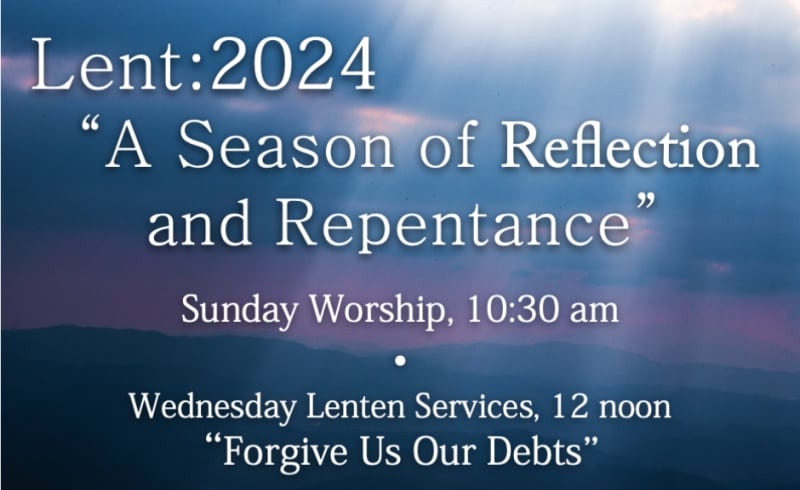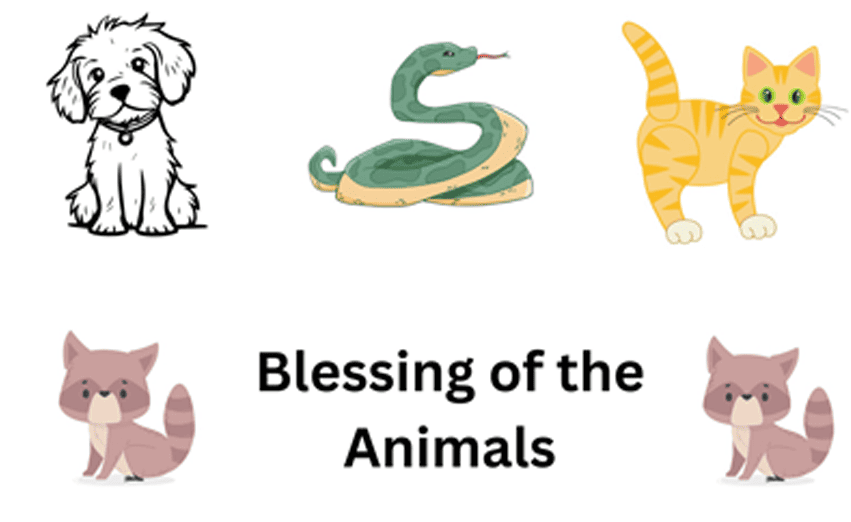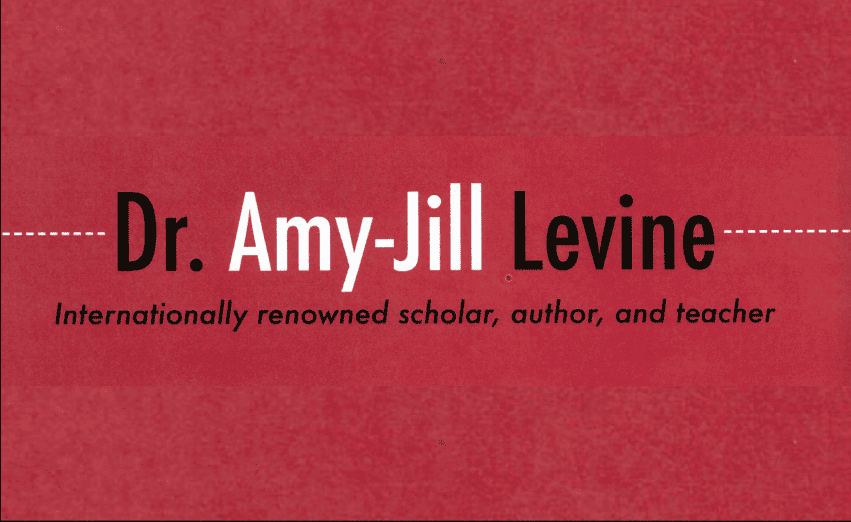Sermon
April 2, 2017: Rev. Dr. Buz Wilcoxon
Introduction
Throughout the season of Lent, we prepare to celebrate the most important events in our Christian tradition, the death and resurrection of Jesus Christ. Here at Spring Hill Pres, we have spent these weeks of Lent listening to stories from scripture about people of faith who resisted the empires of their world. We heard about the Hebrew slaves who fled from the empire of Egypt. We heard about Rizpah, a grieving mother, who stood up against the death-dealing forces of her own people of Israel. We heard about Christ’s invitation to live as countercultural witnesses through the teaching of the beatitudes. From the book of Revelation we heard about the early church’s call be a community of hope amidst the empires and death.
Now, we turn our attention to another critical time in the family story of the Church. In the book of Acts we read about the work of the Holy Spirit, lighting a spark of faith that spread like wildfire throughout the ancient world. Through the brave work of missionaries more and more people from vastly different and diverse races, cultures, and backgrounds were gathered together and welcomed into the church, a community that did not conform to the ways of the Roman Empire. Our scripture lesson today comes from one of these great missionary journeys. The Apostle Paul and his partner Silas have been travelling around the Mediterranean Sea planting churches wherever they can. But, up until this point, all their work has been in the continent of Asia. They haven’t dared to go too far from their home base. But in a vision, Paul hears God calling him to travel to Greece, to take the message of Jesus into Europe, to encounter a very different culture than the one he knows back home.
In the passages just before this text, Paul and Silas have done, just that. They have come to Greece, to the city of Philippi. So much is different here, but one thing remains the same. The Roman Empire is in complete control…or so it seems. They met a woman named Lydia, who helps them to start a church. And a few weeks later, our story pick up as these missionaries are on their way to church. Let us listen for the word of the Lord.
[As the story continues, Paul and Silas tell the jailor all about Jesus and he welcomes them into his home—from prisoners to honored guests. The jailer and his whole household are baptized and become followers of Christ.]
Sermon
In this little snippet from the book of Acts , we see what it was like for the early church to try to follow God’s call in the middle of the Roman Empire. What it was like to point to another Lord besides the emperor on this thrown, to live by the peace of Christ that came through sacrifice rather than the peace of Rome that came through violence and bloodshed.
By my count, in this reading there are four glimpses of the powers of the Empire. Four images of enslavement. Four kinds of captivity. And in response, we see the power of Christ at work, turning the tables upside down, turning the world upside-down. We see some mini-revolutions freeing those who are willing to follow for a new way of life that is not claimed by the empire.
- Enslavement of People
The first instance of enslavement is easy to see, but it may be more than meets the eye. The slave girl is owned by businessmen and possessed by a spirit. Now, explaining the way that ancient people understood reality and the role that spirits played in their worldview is a discussion for another day. For today, there is something important to notice in this particular spirit that has possessed the girl. It doesn’t immediately jump out in the English translation, but in the original language of the story, this girl with the spirit of divination is described in ways that make it clear that she is connected to a particular cult that worshipped the sun god, Apollo.[1] Within Greek culture, this cult was understood to be very important and speak with unquestioned authority. The ancient philosopher Socrates had visited them when he had a question that needed to be answered by the gods. This cult had a long tradition of enslaving and objectifying young women in its service. And we can certainly see this pattern at work in the story. The slave girl is owned by her masters, and they make a substantial profit off of her prophecies and fortune telling.
It reminds me, in a way, of another cult to which we give authority today. The cult of marketing and advertising. The cult that we worship at the tiny electronic alters places at important spots in our homes. These are the people and the patterns that claim to tell us what is true and who we really are. They predict the future promising who we can be if we only buy what they are selling. This cult still enslaves and objectifies human bodies, especially female bodies, in its service. The cult doesn’t care about the ways that it destroys the lives of its servants or dehumanizes society. So long as it sells it’s ok.
But in our story, the slave girl speaks the truth about Paul and Silas, saying that they are servants of the Most High God—the Most High God, higher even than the god Apollo, higher even than the authority of the ad agencies, the power of supermodels, higher than any force or power of the empire. She speaks the truth about the Most High God (even if she is a bit annoying in how she says it) and this truth sets her free. In the name of Christ, the spirit is cast out of her. She is no longer captive to its claim. This is the first great reversal in the story.
- Enslavement to Greed
The second enslavement shows up in the way that the slave girl’s masters respond to the news. They realize that they have just lost their profit stream and they respond by inciting a mob, trumping up false charges and having Paul and Silas beaten and throw in prison. The text tells us that they “saw that their hope of making money was gone.” What was their hope in? Making money. It’s all about the Benjamins, and when that hope was gone, they had nothing else to turn to but anger and revenge. These owners, these businessmen who built their wealth on the exploitation of others are, in truth, enslaved to their own greed and they cannot escape it. They know of no other way to respond than the ways of violence. Here we see quite strongly what it looks like for those in power, for “successful people,” to be enslaved to the tempting, twisting, dehumanizing forces of the empire. This time, though, they aren’t set free. There is no reversal, there is only reinforcement. The greedy and violent business tycoons are left alone by God. Their punishment is to live the rest of their days under their own harsh rule, in their own self-made prisons of empty hopes and worthless dreams.
- Captivity to Unjust Systems
The third kind of captivity occurs when Paul and Silas are thrown into prison for false and untrue charges. What did they do that was against the law? They charged with “disturbing the peace.” And how did they disturb the peace? By worshiping their God and welcoming other people, vastly different kinds of people, rich and poor, slave and free, male and female into their community of faith. That’s not how the Roman Empire works. They were disturbing the shallow and hollow peace that comes when “everybody knows their place and keeps their mouth shut.” Instead, these agents of Christ spoke the truth and invited others to do the same. So, they are arrested. They become captives of the empire, thrown into the maximum security cell of the jail. And what do they do? What would you do if you were in their shoes? Arrested for worshiping God? Condemned because of who you were willing to welcome? What do they do in their prison cells with shackles on their feet? They worship God! They sing and pray and lead other prisoners in singing and praying.
As part of my preparations for becoming a pastor I spent one summer serving in the chaplains office of a maximum security women’s prison. I saw and heard some of the hardest things I’ve ever experienced in my life. Stories of pain, of violence, of betrayal, of evil. Even for me, who got to walk outside those walls every day at 5:00, it was still a dark dark place. And yet, every day I got to hear the prison choir rehearsing. The prison choir under the direction of their chaplain, who taught them to sing and to pray. Their songs of faith and trust were a powerful reminder that God was just as present inside those walls as outside of them, that God’s light was shining there as well. That no story is so broken, so evil, so violent that God cannot still break in with signs of love, forgiveness, and peace.
Those were the kind of songs that I imagine Paul and Silas singing. And then, what does God do for these captives? The God of resurrection life, the God of gospel love sends an earthquake and the walls of the prison come “a tumbling down.” The passage says that the earthquake was so strong that it shook the foundations of the prison. But in their worship and singing behind prison walls, Paul and Silas had already been shaking the foundation of a dark and broken world.
- Enslavement to Fear
Finally, we see one more kind of enslavement in the actions of the jailor. After the prisoners have been set free, in the darkness of night, the jailor assumes that they have all made a run for it, and he knows what that means. It means that he has failed at his post. It means that he will be held responsible for their escape and will be beaten, tortured, and killed by his superiors. So, filled will fear for what is about to befall him, the jailor prepares to take his life. You see, he is also a captive. He is enslaved to the Empire’s greatest power: Fear. Fear, which can lead us to do things that we never thought possible. Paul sees what is about to happen, and rather than let this man harm himself, Paul intercedes. Remember, just a few hours ago this jailer chained Paul and Silas up in shackles, and probably laughed while doing so, enjoying the temporary power trip that it brought him. But rather than letting this opponent, this bad guy, get just what he deserves, Paul speaks up. Paul speaks the truth, and it sets his captor free. Paul interrupts the jailor’s violent attack on himself, and once again speaks the truth that leads to peace and reconciliation. In an act of complete reversal, Paul shares with him the good news, welcomes him in as a brother in Christ, baptizes him to share in the new life of the crucified and risen Lord.
——-
Four shows of power by the Empire, four kinds of enslavement and captivity: 1) captivity of people treated as property, 2) enslavement to greed, 3) captivity to violent and broken systems, and 4) captivity to fear itself.
What do we learn from this story? What does it show us about what it mean to be a person of faith in the midst of the empires of our world today? What does it mean to be baptized into the body of Christ, the community of the church, that is called to live under a different Lord, following a different peace, claiming a different salvation. What does it look like to live authentic lives of faith in broken and weary world, a world that seems each and every day, with each new tragedy and trauma, each betrayal and broken relationship, a world which seem to only make things more and more dark?
What does it look like? How do we truly worship God, speak the truth, and resist the Empire?
We do so, by letting go. Letting go of our destructive habits and forces that exploit people as commodities for our own comfort. It means letting go of blind allegiance to any forces, any powers, and ideologies or worldviews that entrap and ensnare us in the myth that violence is the best answer to the world’s problems. Shaking the foundations of the empire means letting go of greed and fear. Disturbing the simplistic and empty peace that is only oppression in disguise.
Like Paul and Silas setting out into new and unknown areas, letting go means venturing into new landscapes of love, new relationships of reconciliation with vastly different kinds of people. It means following God’s call to new and uncharted territories of trust and sacrifice, into places of great reversal, where God is turning the world upside down. The God who will not let the empires win, the God who overturned even the power of death itself and raised Jesus from the dead for us, the God who promises in Christ to set us free and to change us into a new creation. To God alone be all honor and glory, now and forever. Amen.
[1] In the original Greek, the girl is described as being possessed literally by “the spirit of the python,” which is a reference to the Oracle at Delphi.
Scripture
Acts 16:16-29
One day, as we were going to the place of prayer, we met a slave-girl who had a spirit of divination and brought her owners a great deal of money by fortune-telling. 17While she followed Paul and us, she would cry out, ‘These men are slaves of the Most High God, who proclaim to you* a way of salvation.’ 18She kept doing this for many days. But Paul, very much annoyed, turned and said to the spirit, ‘I order you in the name of Jesus Christ to come out of her.’ And it came out that very hour.
19But when her owners saw that their hope of making money was gone, they seized Paul and Silas and dragged them into the market-place before the authorities. 20When they had brought them before the magistrates, they said, ‘These men are disturbing our city; they are Jews 21and are advocating customs that are not lawful for us as Romans to adopt or observe.’ 22The crowd joined in attacking them, and the magistrates had them stripped of their clothing and ordered them to be beaten with rods. 23After they had given them a severe flogging, they threw them into prison and ordered the jailer to keep them securely. 24Following these instructions, he put them in the innermost cell and fastened their feet in the stocks.
25About midnight Paul and Silas were praying and singing hymns to God, and the prisoners were listening to them. 26Suddenly there was an earthquake, so violent that the foundations of the prison were shaken; and immediately all the doors were opened and everyone’s chains were unfastened. 27When the jailer woke up and saw the prison doors wide open, he drew his sword and was about to kill himself, since he supposed that the prisoners had escaped. 28But Paul shouted in a loud voice, ‘Do not harm yourself, for we are all here.’ 29The jailer* called for lights, and rushing in, he fell down trembling before Paul and Silas.
[As the story continues, Paul and Silas tell the jailor all about Jesus and he welcomes them into his home—from prisoners to honored guests. The jailer and his whole household are baptized and become followers of Christ.]








